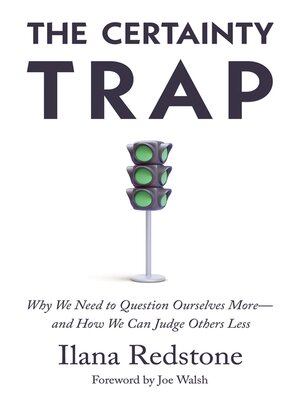The Certainty Trap
ebook ∣ Why We Need to Question Ourselves More—and How We Can Judge Others Less
By Ilana Redstone

Sign up to save your library
With an OverDrive account, you can save your favorite libraries for at-a-glance information about availability. Find out more about OverDrive accounts.
Find this title in Libby, the library reading app by OverDrive.



Search for a digital library with this title
Title found at these libraries:
| Library Name | Distance |
|---|---|
| Loading... |
When we're in the Certainty Trap, we tend to view people who disagree with us as hateful, ignorant, or just plain stupid. When it comes to heated social and political issues in particular, many of us know this feeling well—a consuming state of righteous indignation and moral outrage. And this response makes sense because our very certainty tells us that there are simple and obvious causes and solutions to the hot-button issues we care about most. But the things we care about the most are—far more often than not—morally and ethically complex. If the problems that divide us are inherently complicated, then a sense that the answers are obvious—and that anyone who disagrees must be deficient in some way—is misplaced. It's an oversimplification that both leads to and reflects faulty thinking. When we're certain, we not only fail to recognize the possibility that we're wrong but also fail to be clear about the principles and values that drive our disagreement in the first place. By committing to challenging and clarifying our thinking—by avoiding the trap certainty sets for us—we can increase social trust, reduce political polarization, and better address the world's pressing challenges.







